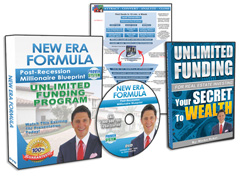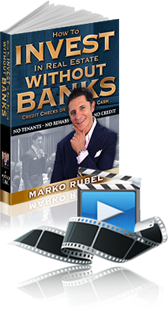

Closing is truly an art and a science. Although it is frequently true that there may well be more than one exit strategy to choose from, by first analyzing available options, then choosing an exit strategy from those options, your likelihood of success will be greatly enhanced and your success assured. Before you ever consider buying a home as an investor, you need to know your way “out” before you get “in”.
For those starting in this business, the process initially will take more of your time and effort and only with experience, will that process become “second nature” to you. As you gain experience, you will intuitively know what the right decision is.
THE 3 COMPONENTS OF YOUR DECISION
There are three components in this decision making process:
(1) Personal Finances
(2) Market Conditions
(3) Deal Structure
Personal Finances
You must always be fully aware of your financial circumstances in order to make a sound decision to invest in any real estate. You must know what your immediate cash needs are and what they may be. Even though a considered exit strategy such as a lease option may seem the most profitable way to proceed, it may serve your interests to choose a less profitable exit strategy to allow you to be paid sooner. For example, you may choose to profit quickly by selling it outright or get paid through a round robin auction. These two strategies are often a chosen tact by seasoned investors if the market conditions reflect declining values and there is a need to sell quickly to avoid losing money. It stands to reason that a beginning investor may most readily choose to cash out most deals right away so he or she can cover their overhead or reinvest in marketing for future deals. Then, in time, as you become more experienced and successful, you can rely on more profitable exit strategies such as lease options. Options like this are often more profitable as they utilize the principle of delayed gratification. It is so often true that the longer you wait for your profit, the bigger it will be.
Market Conditions
Local real estate market conditions will always be a major consideration in determining the best exit strategy. If the market conditions reflect either steady or appreciating market values and you do not need to cash out your profit immediately, then selling with a lease option may be the most profitable way to go. By utilizing delayed gratification, you may profit from the property’s appreciation over time along with the concurrent tax benefit that may accrue.
Deal Structure
How you can and will choose to sell a property will be directly affected by how much you pay for that property and the financing already in place on it. When it comes to purchase price, the general rule of thumb is indeed a simple one. If you pay more for a property, you may limit your exit options accordingly.
For example, if you pay 75% of FMV (Fair Market Value) or less for a property, all exit strategies are available for you. If you pay 80% of FMV for a property, you can only use a lease option as an exit strategy. Pay 90% or more of FMV for a property, unless you find a buyer willing to pay you a lot more than it is actually worth on the open market, you have paid too much and risk losing money in the deal.
Big Picture
The sound way to proceed is to analyze each component separately and then in concert together. After that considered analysis, you then need to make a decision and choose the exit strategy most applicable to the situation. This is not complicated as it seems and do not fear. Analyzing and choosing an exit strategy is an art – that you can and will master and with experience and practice.
Request FREE Funding Kit and Discover How To Legally Bypass Banks And Gain Direct Access To "No-Credit-Required" Funding You Can Use To Achieve Your Financial Freedom... Start Now!













